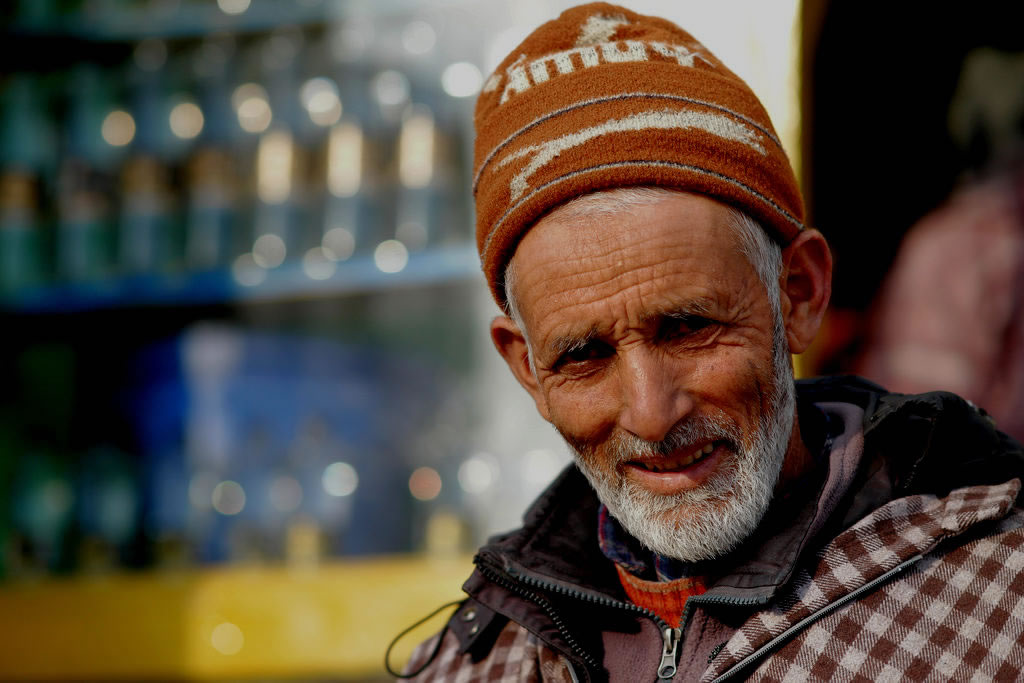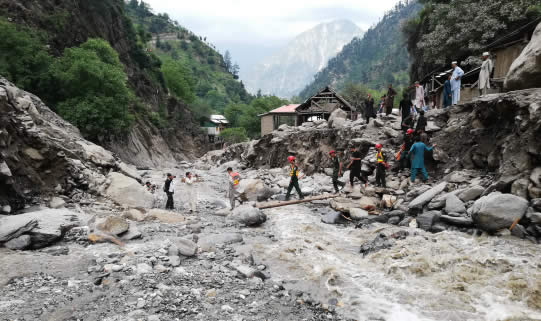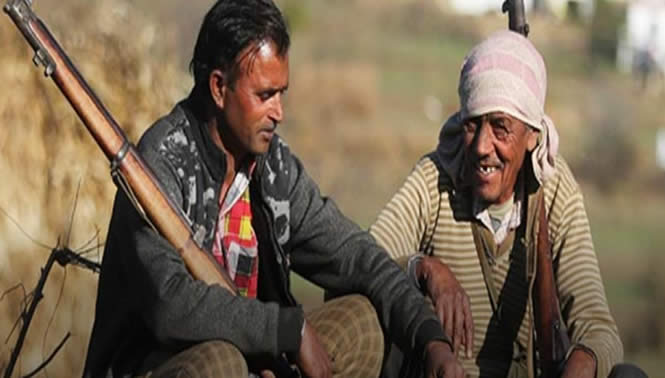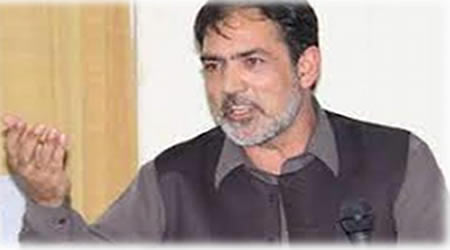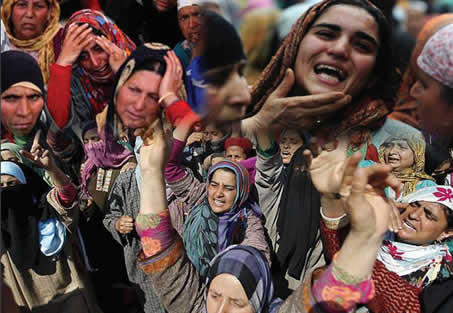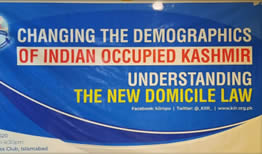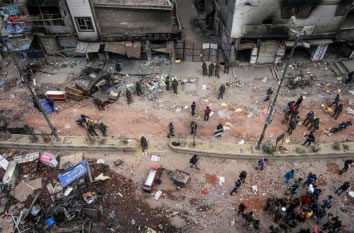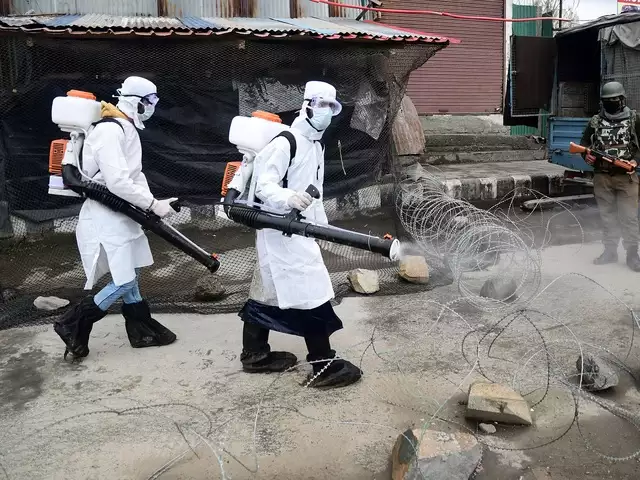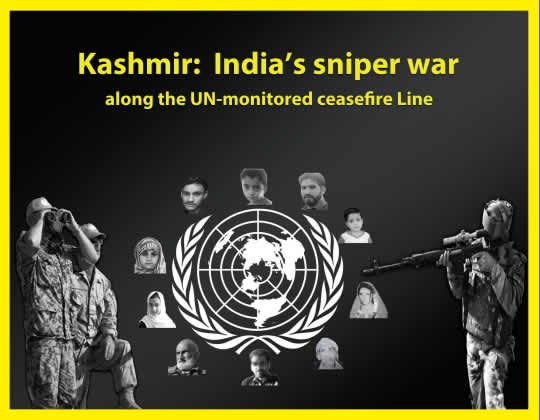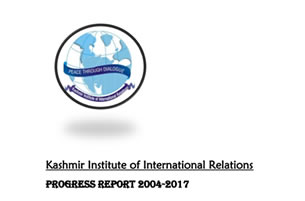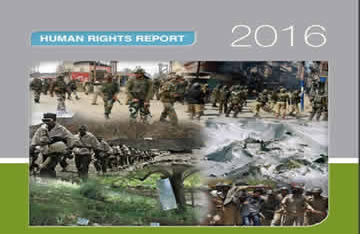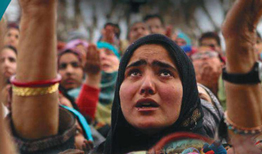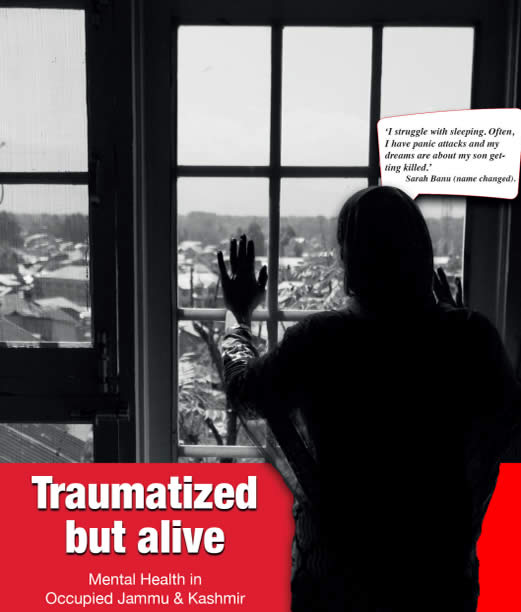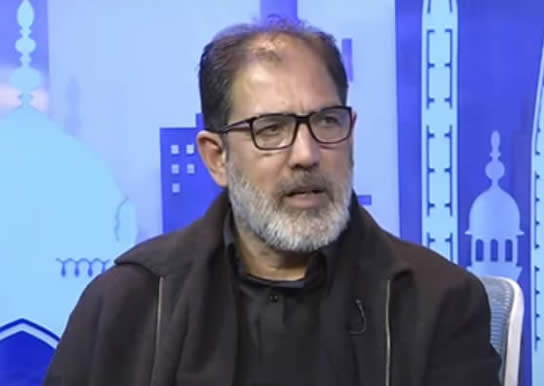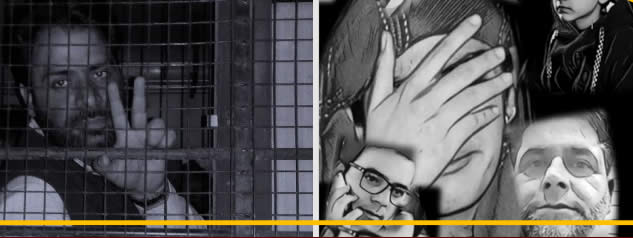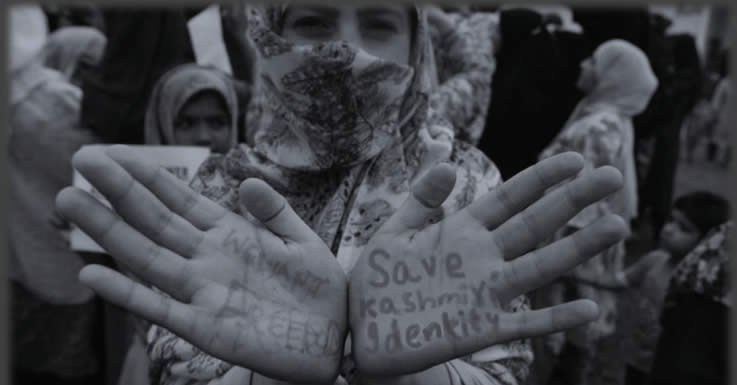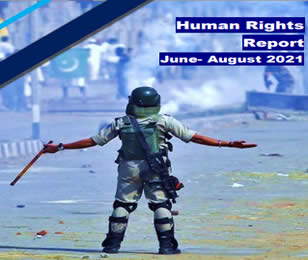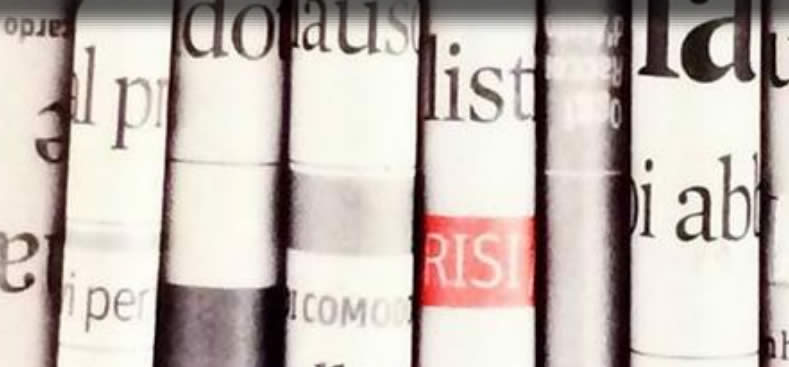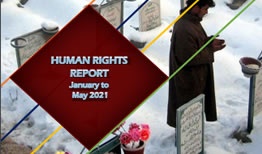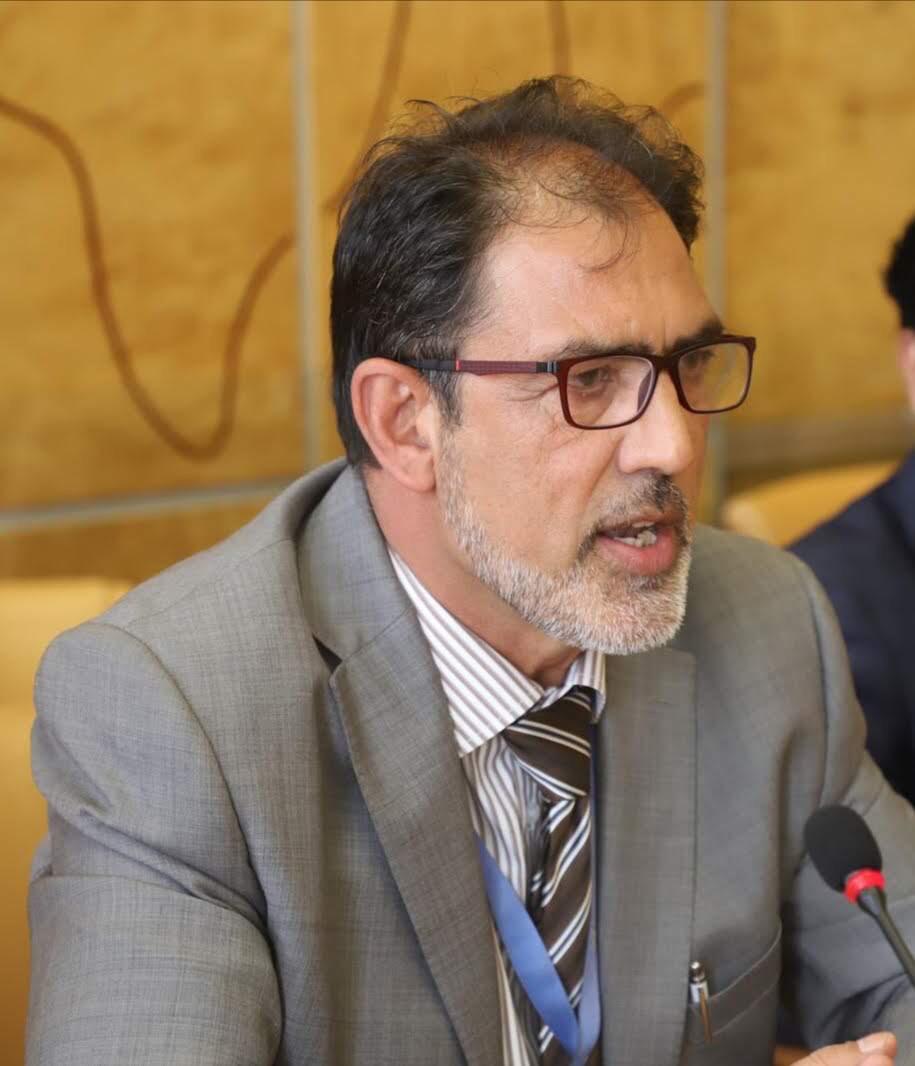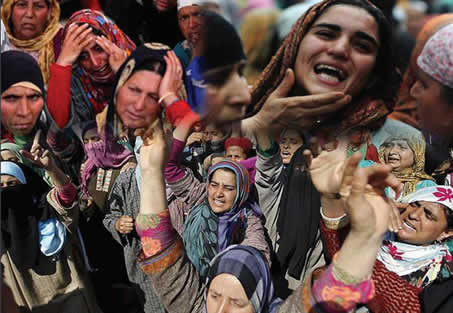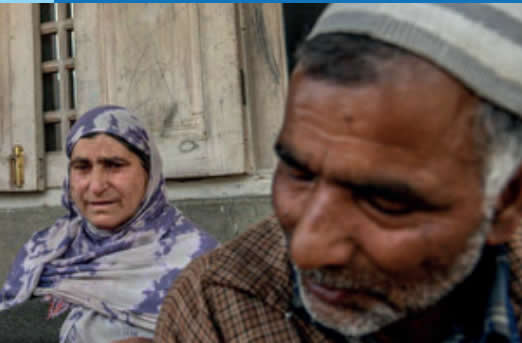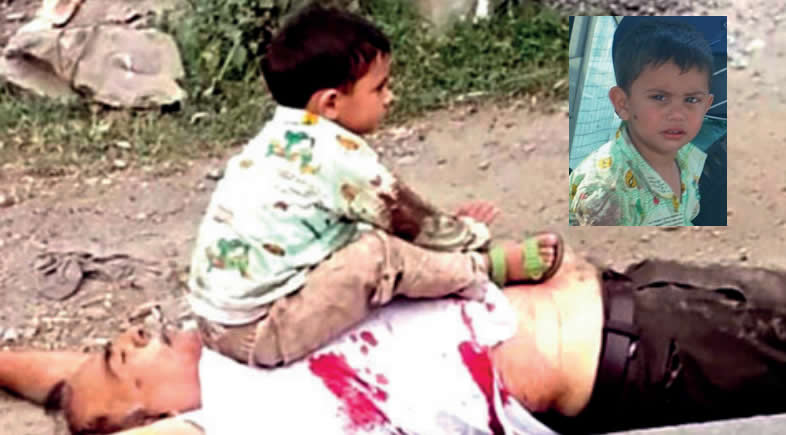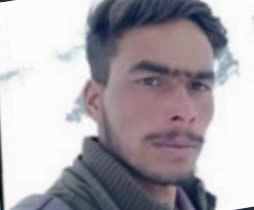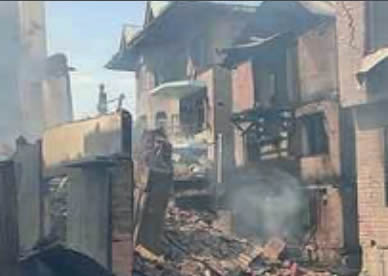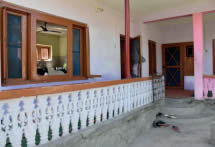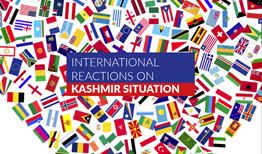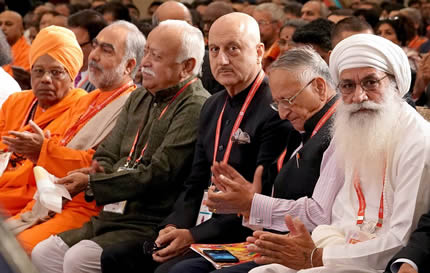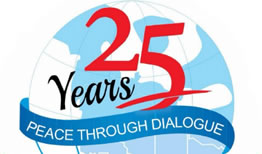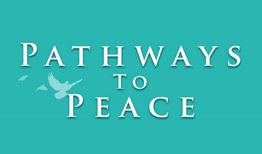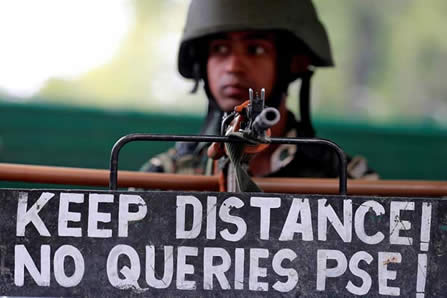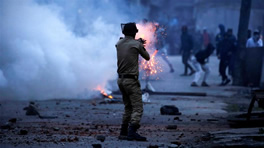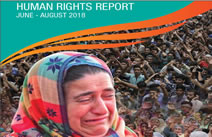Covid - 19 for Indian Occupied Kashmir
On March 21, 2020, the first coronavirus case was found in the region’s main city of Indian Occupied Kashmir, Srinagar. Soon after the confirmation of the declared Corona case, Indian government appealed to the people of IOK to take safety measures to prevent the outbreak. But the question arises how could these people be able to access any information on the pandemic, in the absence of the internet? How could they be able to stock food and medical supplies at home, when they are already suffering from the lockdown occurred on August 5, 2019, due to revocation of Article 370 of Indian Constitution? The essential food and medical stores had been shut since then. Their sources of employment are also under severe threat. So how could the Indian government even guide them to stay at home when they have been restricted from travelling due to travel blockades across the region since August 5?
The World Health Organization declared Coronavirus as a pandemic on the 11th of March 2020, since then 2,034,802 confirmed cases have been reported and 135,163 have died due to this COVID-19. Moreover, this pandemic is bringing the economic depression on the global level, as the stock markets are tumbling, the hospitality industry, tourism, air and road travel are all facing huge losses. According to the estimation of Australian National University (ANU), the world may experience the global GDP loss of $2.4 trillion, with an estimated death toll of 15 million.
As the world scrambles to manage the coronavirus pandemic, dread and tension, win in Indian-directed Kashmir after many COVID-19 cases were identified. Kashmir Valley’s graph for COVID19 is showing a steep rise. The total number of coronavirus positive cases in the Indian Occupied Kashmir has increased to 278, with 48,000 people under observation in Indian Occupied Kashmir. Hospitals and emergency clinics in the contested Himalayan locale have an intense deficiency of specialists and paramedics, while its social insurance offices are lacking to meet the emergency which has disrupted nations with world-class medical infrastructure. "We aren't testing proactively and enough," Junaid Mattu, mayor of Srinagar, said. "We aren't preparing for the worst."
Despite the rising number of cases, on 17 March, the Government of Indian Occupied Kashmir ordered for the continued restrictions on full internet services such as restricting speed to 2G in the region. Complete internet shutdowns have also been imposed intermittently in certain areas in the guise of security. To contain the spread of the virus, the Government also ordered for the shutdown of all educational institutions, public parks, hotels, restaurants and other restrictions on public gatherings. There is a growing anxiety about the pandemic and unwarranted restrictions on content and dissemination of information only stands to add to the panic.
The Indian administration is installing anxiety and fear among the people of IOK as they are not being transparent with them. Ideally, they should have restored high speed internet connection in the region, so people could have access to the substantiate information. The situation of health institutions in IOK is a hotbed of all the pandemic and it is no worse than dying at home from covid-19. The hospitals are lacking the efficient medical staff and equipment, for battling the situation properly. A veteran specialist, the previous head of Government Medical College (GMC) in Srinagar who is familiar with the locale's human services offices, cautioned that a significant catastrophe could happen. However, in the absence of high internet connection, the doctors in IOK have been deprived of attending the online training session, arranged by Indian health ministry, on managing ventilators- critical equipment for patients with COVID-19. “We want to educate people through videos, which is not possible at 2G speed. We are handicapped in the absence of high speed internet,” Dr Suhail Naik, president of the main doctors’ association in Kashmir, said. The audit noted that the doctor to patient ratio in the Kashmir region is one of the lowest in India. "Compared to the doctor-patient ratio of 1:2,000 in India, Jammu and Kashmir, has one allopathic doctor for 3,866 people against the WHO norm of one doctor for 1,000 population," it said.
Social isolation and frequent hand-wash, might be preventive techniques for the world, during this COVID-19 lockdown, but these two advisories might instill or trigger Obsessive Compulsive Disorder, Post Traumatic Stress Disorder, adjustmental disorders, severe depression, etc, for the people of IOK, who are already battling with their psychological issues because of residing in such a conflicted area. These issues would now escalate to a whole different peak because people of IOK have been facing lockdown since August 5, and now the Covid-19 lockdown would instigate more psychological issues.
In the wake of COVID-19, when social distancing is obligatory, it is highly suggested to Indian government to release those who are under trials, particularly Kashmiri prisoners who have been arrested under Public safety act (PSA), after 5th August 2019 and held in far-flung jails of India. Because of overcrowded and pathetically maintained jails, it is better to release them, otherwise be ready to face the worst consequences, as there would be high chances of getting affected from the coronavirus in such miserable conditions. Those inmates who had been shifted to the jails outside Kashmir are facing dreadful conditions due to overcrowded jails. Tihar jail is one of these jails, which is carrying 17,534 inmates and its capacity is not more than carrying a population of 10,000 inmates. “An outbreak of COVID-19 in a prison could be devastating to the population there, especially an overcrowded prison”, said Elena Leclerc, the Health in Detention programme coordinator for the International Committee of the Red Cross (ICRC).
As India has recorded the highest spike with 478 coronavirus confirmed cases in 24 hours; total over than 14000 confirmed cases and increasing. At this moment, the question is about the insurance of safety of people of IOK, detained outside the region as India has already reached the level of outbreak of coronavirus after a 56-year-old man died due to Covid-19 in Dharavi slum, which is a home to around 1 million people. Dharavi slum has a population density of almost 30 times greater than New York --and that is about 280,000 people per square kilometer. Six international human rights organizations in a recent joint statement in Geneva stressed Indian government to release the arbitrarily detained Kashmiri prisoners, as India has an obligation to ensure the physical and mental health and well-being of inmates, under International law.
On one hand, where students from all over the world are attending online classes, arranged by their academic institutions, amidst COVID-19 lockdown, the Kashmiri students are still deprived of going to school or attend any kind of online working since August 2019 lockdown. Nothing has changed for the poor people of Kashmir. They are frustrated and angry because they have not access to their basic right of education. In case, if their institutions are arranging online classes, they would not be able to learn from them too, because of the continuous internet blockade. When Indian government claims to provide internet facilities in IOK, they mean 2G connection, which is absolutely of no use as online classes do not work on 2G and they are unable to download study material. They are urging the government to restore the high speed internet, so they could have access to their virtual classes.
Furthermore, Indian government didn’t even resist applying the policies based on apertheid in Indian occupied Kashmir. Amidst the COVID-19 breakout in the whole world, Indian government decided to subdue the Kashmiri’s right of self-determination by introducing the new Kashmir domicile law, according to which, those who have been living in Kashmir over a period of 15 years, automatically attains the right of permanent citizenship. After the revocation of Article 370 of Indian Constitution, which absolutely abrogated the special status granted to Jammu and Kashmir, the new Kashmir domicile law is evident to be the second attempt by the Indian administration to bring demographic flooding to IOK. The new kashmiri law is seemed to be lenient for Indians and harsh for the Kashmiris in many cases, such as those who have resided for a period of 15 years in Indian-occupied Kashmir or studied for a period of seven years and appeared in Class 10/12 examinations in educational institutions located in the region are now eligible to become permanent residents. In addition to this, under this law, the children of central government officials, who served in IOK for at least 10 years, are also eligible for permanent citizenship.
Kashmiris are fearing from this demographic flooding as their land would be soon snatched by the Indians, who aim to settle in IOK permanently, which would convert the IOK from muslim majority region to Muslim minority. Indeed, Article 370 abrogation, Citizenship Act and now Kashmir domicile law, are acting upon the extermination of Muslim community in India. The Kashmiri residents are striving for their right of Self-determination under a complete threat of their right of life. The misery of these people were on their peak, when they got hit by the COVID-19 lockdown. Instead of giving relief, Indian authorities are continuously torturing the innocent masses of Kashmiris until they give up on their lives to save their loved ones.
Pakistan, during the video conference of SAARC countries, clarified its stance regarding the health emergence in IOK, thus demanded India, to lift the restriction on communications and ensure access to medical supplies to the people over there. Amnesty International also condemned Indian government for not restoring or improving the Internet connection in the region. Furthermore, Human Rights Watch, a non-governmental rights group, convicted India and emphasized to pull back the restrictions on access to the Internet in Kashmir. “Internet shutdowns block people from getting essential information and services. For many children and others seeking an education, the Internet is needed to continue learning as schools shutter around the world,” said Deborah Brown, senior digital rights researcher and advocate of HRW. Referring to the global pandemic, she focused on the insurance from the government authorities to provide the immediate access to the fastest and broadest possible service for all. The World Health Organization also suggested that Indian government should act efficiently in IOK to combat the covid-19 pandemic by uplifting the existing lockdown, in which the innocent masses of IOK have been deprived of basic essentials of life, such as access to food, health, travel and communication resources.
During the pandemic COVID-19, it is not about the territorial sovereignty or integrity between the two states, but it is completely related to human rights violation on an epic. It is mandatory for the government to reinstate the high speed internet facilities in the region for the connectivity and awareness of people. Eight million population of IOK are living in chaos because of vague, unreliable and incomplete information regarding the spread of pandemic. On the other hand, the health professionals and workers are also not being updated on the matter of Covid-19. This is evident to be the negligence, criminal and irresponsible behavior of Indian government regarding this. Kashmir Civitas, a civil society and advocacy group, called on the World Health Organization, to press the Indian government to lift the communication siege and give Kashmiris access to the latest health updates. Moreover, the Indian government is worsening the situation by avoiding testing at the entry points to IOK and locking up citizens without adequate medical preparation.
The Indian authorities need to compensate the Kashmiris for the economic deprivation, from which they are suffering since the lockdown August, 2019. They should provide people with relief packages in such a catastrophe, instead of leaving them in absolute chaos. They need to adopt proper measures to protect the poor and vulnerable people of IOK, by providing rations to them, so they could not starve to death in such a harsh lockdown, as this strict, centralized and unplanned step by Indian government can create chaos, starvation and death.
“There is no region in the world, in which the Secretary-General’s call for global ceasefire does not apply,” the UN chief’s spokesman Stephane Dujarric said. The UN chief’s Secretary-General Antonio Guterres’, explained COVID-19, as an epidemic global crisis. He made a global appeal to the states for launching a ceasefire in the world’s conflicted zones. This appeal would also be applicable on the case of Kashmir dispute, but the brutality and authoritarianism of Modi, Prime minister of India could be evident by the incident of applying lockdown amidst lockdown in Indian Occupied Kashmir, to bring all Kashmiris to strive for death. India, rather than relaxing the Line of Control, engages in violation of ceasefire, across the borders, causing casualties.
People in Indian Occupied Kashmir, were forced to stay in their homes and were subjected to the harshest laws including communication lockdown, arbitrary arrests and curfew since August 5, 2019. This is still continuing. The comparisons that have emerged are understandable between the existing IOK lockdown and Covid-19_ world under lockdown. Meanwhile, in Kashmir and other conflicted areas, people are being locked down under oppressive regimes denying them their human rights. And for the world, these are just preventive measures for their own safety. It’s not the same thing at all.
About the Author
Ms. Ayesha Waheed is a Researcher at Kashmir Institute of International Relations (KIIR). She can be reached via twitter at @Ayesha58489614 & E-mail at ayeshawaheed996@gmail.com
Related Reports
